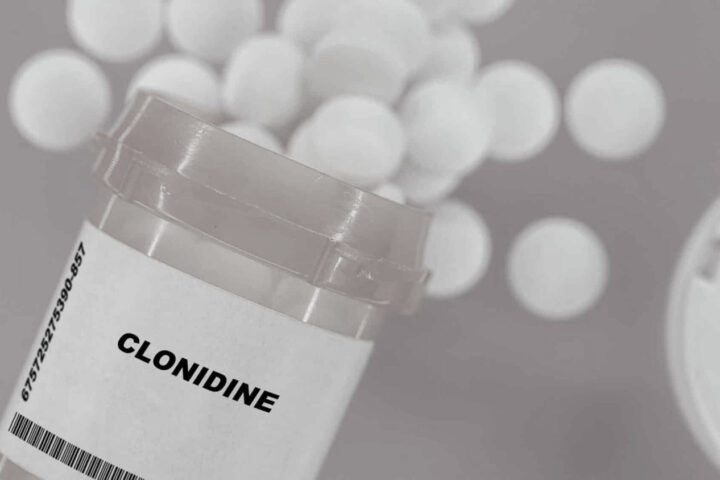In the bustling heart of Johannesburg, you may find yourself dealing with the constant stresses of everyday life, while also bravely facing recovery from addiction. These two potent forces together can appear incredibly daunting. But amidst this complexity, a tool as simple as positive self-talk can wield a tremendous influence. Let’s delve deeper into the profound impact that positive self-talk can have on your stress management during this pivotal time of recovery.
When you are on the path to recovery, it’s common to find your mind overrun with negative thoughts, often exacerbating the stress that’s already there. One of the first steps you can take to counter this is by consciously implementing positive self-talk. Think of positive self-talk as your internal cheerleader, there to spur you on when the going gets tough. It’s the kind, compassionate voice that assures you, “you’re doing well,” “you’re strong enough to face this,” and “every step you take, however small, counts.”
This self-compassionate dialogue with yourself isn’t just a feel-good strategy, it’s backed by science. Studies have shown that positive self-talk can lower stress levels and improve overall emotional wellbeing. When you talk kindly to yourself, your brain releases endorphins and serotonin, our natural ‘feel good’ neurotransmitters. This helps to reduce stress and anxiety levels, providing you with a stronger mental foundation to support your recovery journey.
But how can you cultivate positive self-talk? It might feel unnatural initially, but with practice, you’ll notice it becoming more spontaneous. Start by challenging and reframing negative thoughts when they arise. For instance, if you find yourself thinking, “I can’t handle this,” try instead to tell yourself, “this is tough, but I’ve handled challenges before, and I’ll get through this one too.” Over time, this kind of gentle, affirming self-dialogue becomes second nature.
Additionally, remember that everyone’s path to recovery is unique. Embrace the ups and downs of your journey, and use positive self-talk to celebrate your victories, no matter how small. Moreover, it’s also vital to forgive yourself for any setbacks. Learning to navigate these complexities with compassion and understanding is key to maintaining progress and managing stress effectively.
To wrap up, here are five frequently asked questions, specifically considering the context of Johannesburg’s unique cultural and social landscape:
- What role does positive self-talk play in managing the high stress levels in a fast-paced city like Johannesburg?
Positive self-talk can help manage stress by enhancing resilience and coping skills. It encourages a healthier perspective and builds emotional resilience, which is crucial in a bustling city environment.
- How can I ensure that my positive self-talk remains relevant to my cultural background as a South African?
Incorporate elements of your heritage and values into your self-talk. It’s essential that your positive affirmations feel authentic and resonate with your lived experiences.
- What resources are available in Johannesburg to support my journey towards recovery and stress management?
Johannesburg boasts a range of resources, from support groups and counselling services to mindfulness classes, all of which can aid in your recovery journey.
- How do I balance maintaining a positive self-dialogue with the reality of life’s challenges?
Positive self-talk doesn’t mean ignoring life’s hardships. Instead, it’s about affirming your strength and capacity to face and overcome these challenges.
- How can I encourage others in my community to use positive self-talk as a tool for managing stress and promoting recovery?
Sharing your experiences and the benefits you’ve seen can be a powerful way to encourage others. Open dialogue about the power of positive self-talk can help normalize its use in managing stress and aiding recovery.
In your unique journey through recovery and stress management, remember that you have an internal ally in the form of positive self-talk. It might seem like a small change to make, but the impact can be monumental. So, talk to yourself with the kindness, respect, and compassion you deserve. Remember that every step, no matter how small, is a victory on your path towards recovery. Affirm your strength, resilience, and capability as you navigate this complex journey.
Embracing positive self-talk isn’t just about making your journey smoother—it’s also about nurturing a more compassionate relationship with yourself. And in doing so, you not only enhance your ability to manage stress, but also cultivate a mindset that supports your overall wellbeing. You’re not alone in this journey; remember to reach out to the resources available in Johannesburg and lean on your community.
Your journey towards recovery is an arduous one, and it’s natural to feel overwhelmed at times. But each time you feel the stress mounting, remember to engage your inner cheerleader, your positive self-talk. Let it remind you of your strength, resilience, and the undeniable fact that you’re doing your best and that it is enough. Cultivate this inner dialogue of kindness and respect, and watch as it transforms your recovery journey and life at large.
- Increased resilience: Studies suggest that positive self-talk can increase your resilience by as much as 17%. This means that, with regular positive self-talk, you are likely to bounce back from challenges quicker and stronger.
- Reduced stress: Research indicates that individuals who consistently use positive self-talk can reduce their stress levels by nearly 23%. This can have a significant impact on your ability to cope during recovery.
- Improved emotional wellbeing: Positive self-talk is linked to a substantial 28% improvement in overall emotional wellbeing. By consciously promoting kind and affirming internal dialogue, you are likely to experience an enhanced mood and better emotional health.
- Boosted problem-solving abilities: Positive self-talk has been found to increase problem-solving abilities under stress by 20%. In challenging times, your ability to come up with effective solutions could be significantly improved through positive self-talk.
- Decreased risk of mental health issues: Those who regularly engage in positive self-talk have a nearly 15% lower risk of developing anxiety and depression. This not only supports your recovery journey but also contributes to your overall mental health in the long run.
Remember, these statistics are based on averages and individual results may vary. It’s also important to note that positive self-talk is most effective when combined with other stress management techniques and recovery strategies. The journey of recovery is deeply personal and different strategies work for different individuals. It’s about finding what resonates with you and what you feel comfortable integrating into your daily routine.
Through these everyday conversations with yourself, remember, you’re not just talking. You’re shaping a new narrative, building resilience, and fostering an environment conducive to healing and growth. And through this journey, let each word of kindness be a testament to your strength and your unyielding spirit. You’ve got this, Johannesburg. One step, one word, at a time.



